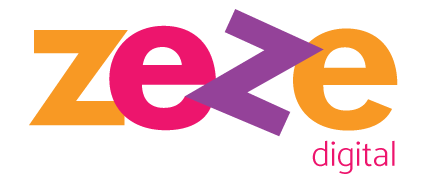
In today’s hyper-competitive business landscape, establishing a strong brand identity is more critical than ever. A brand’s identity serves as its unique fingerprint, distinguishing it from competitors and resonating with target audiences on a deeper level. Marketing agencies play a pivotal role in crafting and amplifying this identity, leveraging strategic branding initiatives to foster recognition, loyalty, and long-term success. Let’s explore the significance of brand identity and recognition within the realm of marketing agencies.
- Defining Brand Identity: At its core, brand identity encompasses the visual, verbal, and experiential elements that define a brand’s personality and positioning. From logos and color schemes to messaging and tone of voice, every aspect of a brand’s identity contributes to its overall perception in the minds of consumers. Marketing agencies work closely with clients to articulate their brand’s values, mission, and unique selling propositions, translating these insights into cohesive branding strategies that resonate with target audiences.
- Creating Visual Cohesion: Visual elements play a central role in shaping a brand’s identity and fostering recognition. Marketing agencies employ design principles to create visually appealing logos, typography, and imagery that reflect the essence of a brand and convey its message at a glance. By ensuring visual cohesion across all touchpoints, from websites and social media profiles to packaging and advertising materials, agencies reinforce brand identity and enhance brand recall among consumers.
- Building Emotional Connections: Beyond aesthetics, brand identity is about forging emotional connections with consumers. Marketing agencies employ storytelling techniques to humanize brands, weaving narratives that evoke empathy, inspire loyalty, and foster trust. Whether through compelling brand stories, user-generated content, or experiential marketing campaigns, agencies cultivate meaningful connections that transcend transactional relationships and turn customers into brand advocates.
- Consistency and Recognition: Consistency is key to building brand recognition and recall. Marketing agencies establish brand guidelines that dictate how a brand’s identity should be represented across all channels and touchpoints. By maintaining consistency in design, messaging, and brand voice, agencies ensure that consumers can easily recognize and identify the brand amidst a sea of competitors, strengthening its presence in the marketplace.
- Adaptability and Evolution: In a constantly evolving marketplace, brand identity must be flexible enough to adapt to changing trends and consumer preferences while remaining true to its core values. Marketing agencies help brands navigate this balance, conducting market research, monitoring industry trends, and conducting brand audits to ensure that their identity remains relevant and resonant over time. Whether through brand refreshes, rebranding initiatives, or targeted campaigns, agencies facilitate the evolution of brand identity to stay ahead of the curve.
- Measuring Impact and ROI: Marketing agencies employ various metrics and analytics tools to measure the impact of branding initiatives and quantify return on investment (ROI). From brand awareness surveys and sentiment analysis to tracking website traffic and social media engagement, agencies provide clients with actionable insights into the effectiveness of their branding efforts, enabling them to refine strategies and optimize resources for maximum impact.
In conclusion, brand identity and recognition are foundational pillars of successful marketing strategies, driving consumer perception, preference, and loyalty. By partnering with marketing agencies that specialize in branding and identity, businesses can harness the power of strategic branding initiatives to elevate their presence in the marketplace, cultivate lasting relationships with consumers, and achieve sustainable growth in an increasingly competitive landscape.
